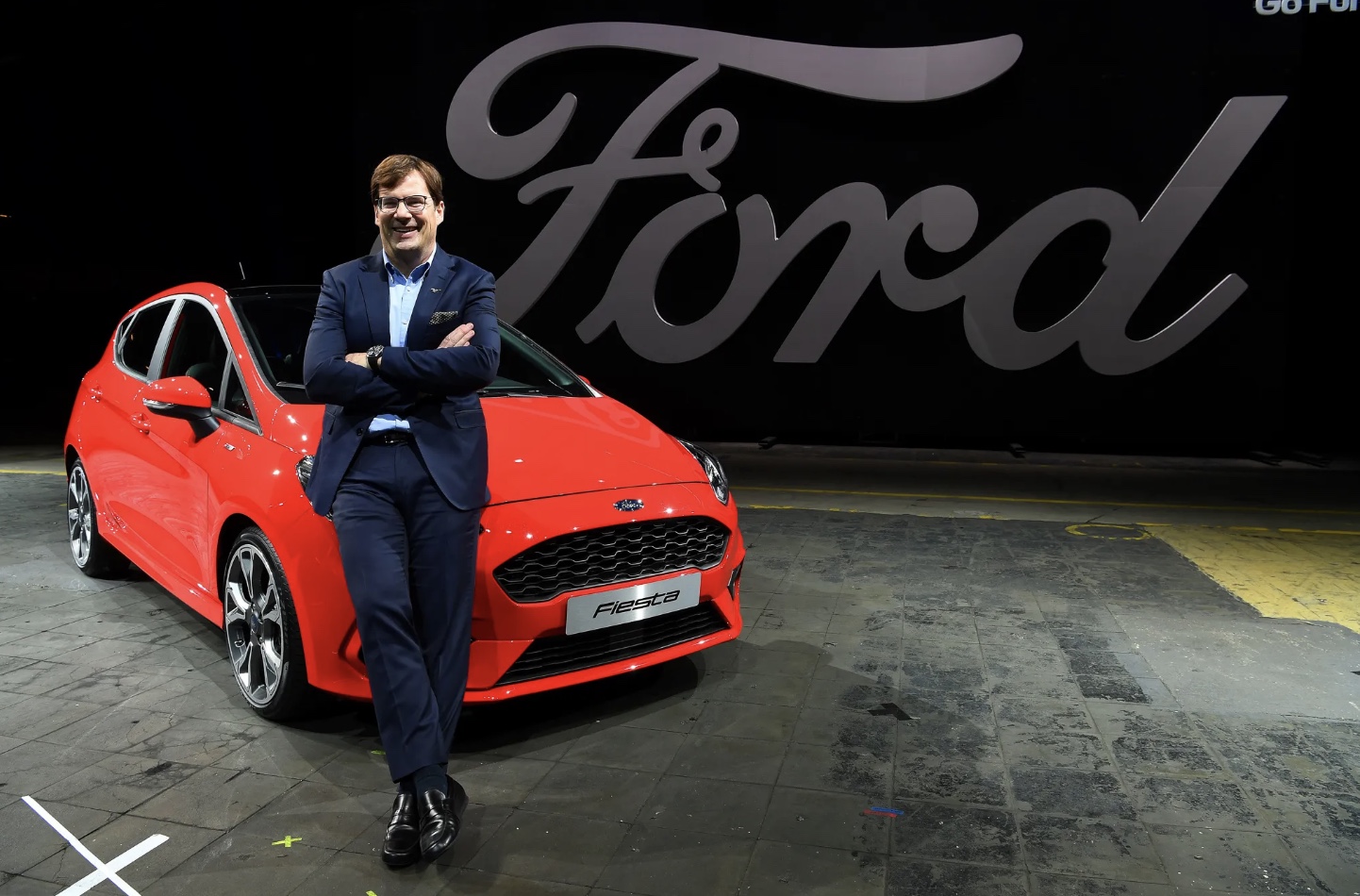Ford CEO Pushes for a Return to Small Cars: A Bold Move in a Big Vehicle Market

Ford’s Departure from Small Cars
In 2019, Ford made a significant shift by discontinuing sedans and small cars, focusing instead on the booming SUV and pickup truck market. This strategy proved successful, with the F-150 consistently ranking as the best-selling vehicle in the U.S. However, as the automotive industry transitions towards electric vehicles (EVs), Ford CEO Jim Farley now urges Americans to rekindle their love for smaller cars. This appeal comes from an automaker that led the charge towards larger vehicles, making his message both surprising and compelling.
The Rise of “Monster Vehicles”
Ford’s decision to phase out small cars played a crucial role in popularizing large “monster vehicles.” SUVs and pickup trucks, like the F-150, have grown in size with each generation, meeting the American appetite for big, powerful vehicles. However, Farley argues that the future of EVs necessitates a shift back to smaller, more efficient cars. He emphasized this point in an interview with CNBC, stating that America’s obsession with large vehicles must end to embrace sustainable EV adoption.
Challenges with Large EVs
Farley highlights significant challenges associated with producing large EVs. The weight of these vehicles drives up battery costs, making them less viable from a financial standpoint. “You have to make a radical change as an automaker to get to a profitable EV,” Farley explained. “These big, huge, enormous EVs, they’re never going to make money. The battery is $50,000. … The batteries will never be affordable.”
This economic reality forces Ford to reallocate capital towards smaller, more affordable EVs. Farley’s stance isn’t about nostalgia for models like the Ford Fiesta but a strategic pivot aimed at sustainability and profitability in the evolving EV market. Ford plans to introduce a $30,000 EV by 2027, targeting consumers who value efficiency and affordability.
Global Trends in Small Cars
Farley’s advocacy for smaller vehicles aligns with global automotive trends. Outside the U.S., compact EVs dominate the market. In China, the Wuling Hong Guang Mini EV, with its modest range of under 100 miles, has become a best-seller. Similarly, the BYD Dolphin Mini in Mexico offers just under 200 miles of range. These models highlight a stark contrast to the American obsession with range and size.
“If we cannot make money on EVs, we have competitors who have the largest market in the world, who already dominate globally, already setting up their supply chain around the world,” Farley noted. “And if we don’t make profitable EVs in the next five years, what is the future? We will just shrink into North America.”
The Future of Small Cars in America
Farley’s statements suggest a potential revival of small cars in Ford’s lineup, at least in the EV segment. While it’s unlikely that Ford will compete with the smallest Wuling and BYD EVs, the company might embrace small entry-level cars once again in the U.S. Farley’s push for smaller vehicles isn’t just about profitability; it’s about ensuring Ford’s competitive edge in a rapidly changing market.
A Dream of Compact Icons
The idea of Ford returning to small cars evokes memories of iconic models like the Ford Fiesta ST, Focus SVT, Escort ZX2, or Probe. While these specific models might not make a comeback, the vision of a future where Ford embraces compact, efficient vehicles is both exciting and practical. It aligns with global trends and addresses the pressing need for sustainable, affordable transportation.
Conclusion
Ford’s pivot from small cars to larger vehicles has significantly shaped the American automotive landscape. As the industry moves towards electric vehicles, CEO Jim Farley’s call to embrace smaller cars marks a strategic shift aimed at sustainability and profitability. While the cultural significance of vehicles like the Dodge Charger remains strong, the future of the automotive industry may well lie in efficient, compact EVs that meet both economic and environmental needs.
This transition won’t be easy. It will require a cultural shift and a reimagining of what American drivers value in their vehicles. However, with strategic planning and a focus on innovation, Ford could lead the way in making small cars desirable again, ensuring a sustainable and profitable future in the rapidly evolving automotive market.

